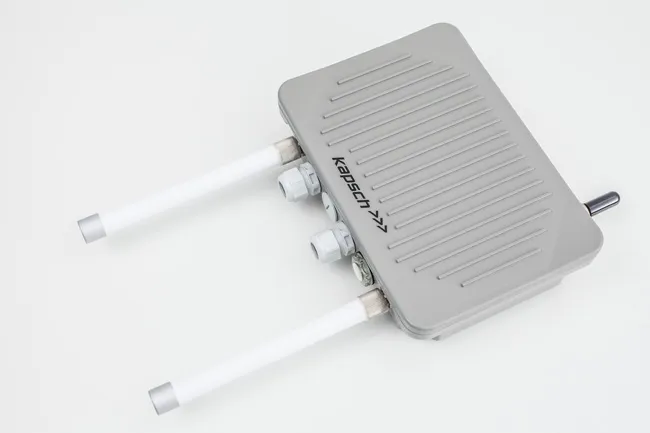
The C-V2X-based intelligent transport system (ITS) station platform - also known as a roadside unit (RSU) - is based on the
To effectively run cooperative ITS (C-ITS), road operators rely on the data transmitted by the vehicles. With automakers using different vehicle communication technologies, the implementation of different roadside ITS station platforms are needed. The RIS-9260 is a configurable roadside ITS station platform.
Kapsch believes the availability of RIS-9260 will accelerate the commercial introduction of V2X communication and will be of special interest to road operators and cities as it unlocks the C-ITS deployment. Alexander Lewald, CTO of Kapsch TrafficCom says, “Our RIS-9260 roadside ITS platform is for our connected road solution. Beyond its use for roadsides, the solution comprises of V2X edge-computing, and is a collaborative mobility platform, as well as an intuitive software development kit that allows road operators to develop V2X applications in a fast and agile way.”
“With its superior performance, C-V2X will offer significant improvements in road safety and support for future autonomous vehicles and smart transportation systems,” said Nakul Duggal, senior vice president of product management, Qualcomm Technologies, Inc. “We look forward to continuing our work with leading RSU providers like Kapsch to help accelerate the commercialisation of the C-V2X direct communications using the 9150 C-V2X chipset solution. The automotive industry is innovating at an extraordinary rate and Qualcomm Technologies’ C-V2X chipset solution is helping to lead the way.”
Kapsch has long-term experience in deploying V2X roadside solutions and fostering intelligent transportation around the globe and has been instrumental in trails and deployments across Europe, North America, Asia and Australia.
The RIS-9260 will be available for C-V2X deployments as of Q2/2019.
Kapsch TrafficCom is a provider of intelligent transportation systems in the fields of tolling, traffic management, smart urban mobility, traffic safety and security, and connected vehicles. As a one-stop solutions provider, Kapsch TrafficCom offers end-to-end solutions covering the entire value creation chain of its customers, from components and design to the implementation and operation of systems. The mobility solutions supplied by Kapsch TrafficCom help make road traffic safer and more reliable, efficient, and comfortable in urban areas and on highways alike while helping to reduce pollution.
Kapsch TrafficCom is an internationally renowned provider of intelligent transport-ation systems thanks to the many projects it has brought to successful fruition in more than 50 countries around the globe. As part of the Kapsch Group, Kapsch TrafficCom has subsidiaries and branches in more than 30 countries. It has been listed in the Prime Market of the Vienna Stock Exchange since 2007 (ticker symbol: KTCG). Kapsch TrafficCom currently has more than 5,200 employees, and generated revenue of approximately EUR 693.3 million in fiscal year 2017/18.







